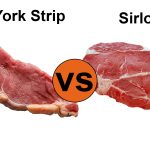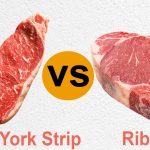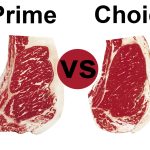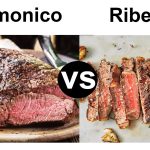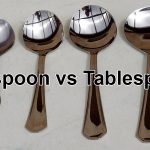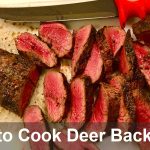If you’re looking to enjoy the best beef experience, Wagyu vs Kobe provide two distinct flavors that both have their devoted followings. While there are some similarities between them, understanding the differences will allow you to pick the perfect cut of meat for your next meal. In this blog post, we’ll explore what makes Wagyu and Kobe such special types of beef and break down the unique characteristics that set them apart.
What Is Wagyu Beef?
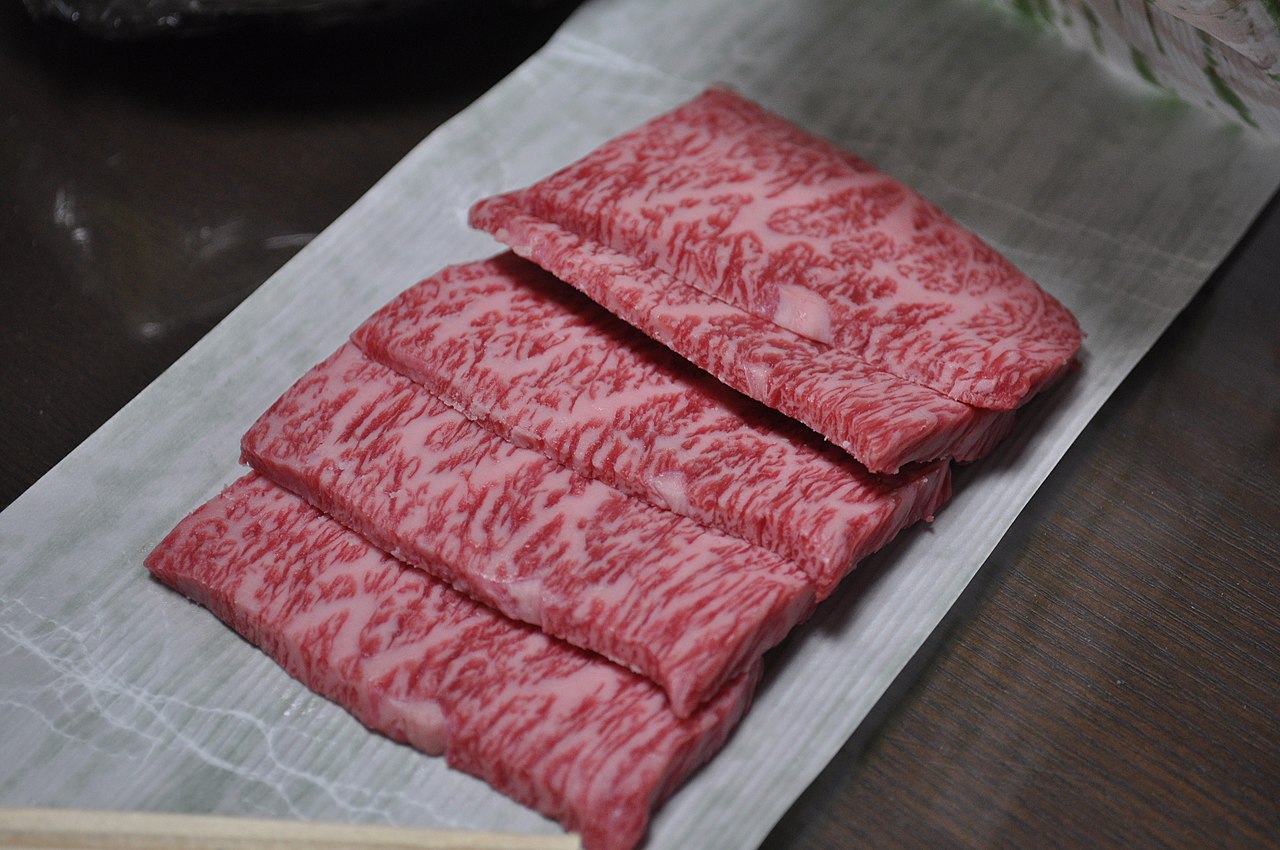
Wagyu beef is Japanese beef that is highly prized for its marbling and tenderness. The name “Wagyu” actually refers to four different breeds of cows: Japanese Black, Japanese Brown, Japanese Polled, and Japanese Shorthorn. These cows are raised in Japan and must meet specific criteria to be labeled as Wagyu. This includes being bred according to strict guidelines, having an intense marbling pattern, and weighing no more than 1,000 pounds when slaughtered.
One of the most distinctive features of Wagyu beef is the high amount of intramuscular fat it contains a result of selective breeding over centuries. This unique fat content gives Wagyu a distinct taste that many connoisseurs seek out, as well as a tender texture that is highly sought-after.
Wagyu Nutrition Facts:
• Protein: 21-30 g
• Total Fat: 3.6 – 25 g
• Saturated Fat: 0.8 – 17 g
• Monounsaturated Fat : 1.1 – 14 g
• Polyunsaturated Fat : 0.2 – 4 g
• Cholesterol: 30–90 mg
• Sodium : 40–150 mg
• Potassium : 350–550 mg
• Carbohydrates : 0 – 5 g
• Fiber: 0 – 2 g
• Sugars: 0 – 2 g
Wagyu beef has been shown to contain higher level of healthy fats, including monounsaturated fatty acids and polyunsaturated fatty acids, compared to traditional beef. This higher level of healthy fats can help reduce cholesterol levels and lower the risk for heart disease.
Wagyu is also an excellent source of high quality protein, providing all nine essential amino acids to support muscle repair. It is a good source of key minerals such as iron, phosphorus, selenium, zinc and magnesium which for a range of processes in the body.
Wagyu beef has a unique flavor profile that sets it apart from regular beef varieties. The fat marbling gives Wagyu its signature sweet, buttery taste that comes with a hint of nuttiness. The rich flavor makes it perfect for steak dishes or any other preparation that calls for beef.
Wagyu is also a great source of conjugated linoleic acid (CLA), which has been associated with numerous health benefits, such as weight loss and improved immunity. Additionally, Wagyu contains high levels of omega-3 fatty acids that can help protect against inflammation and heart disease.
What Is Kobe Beef?
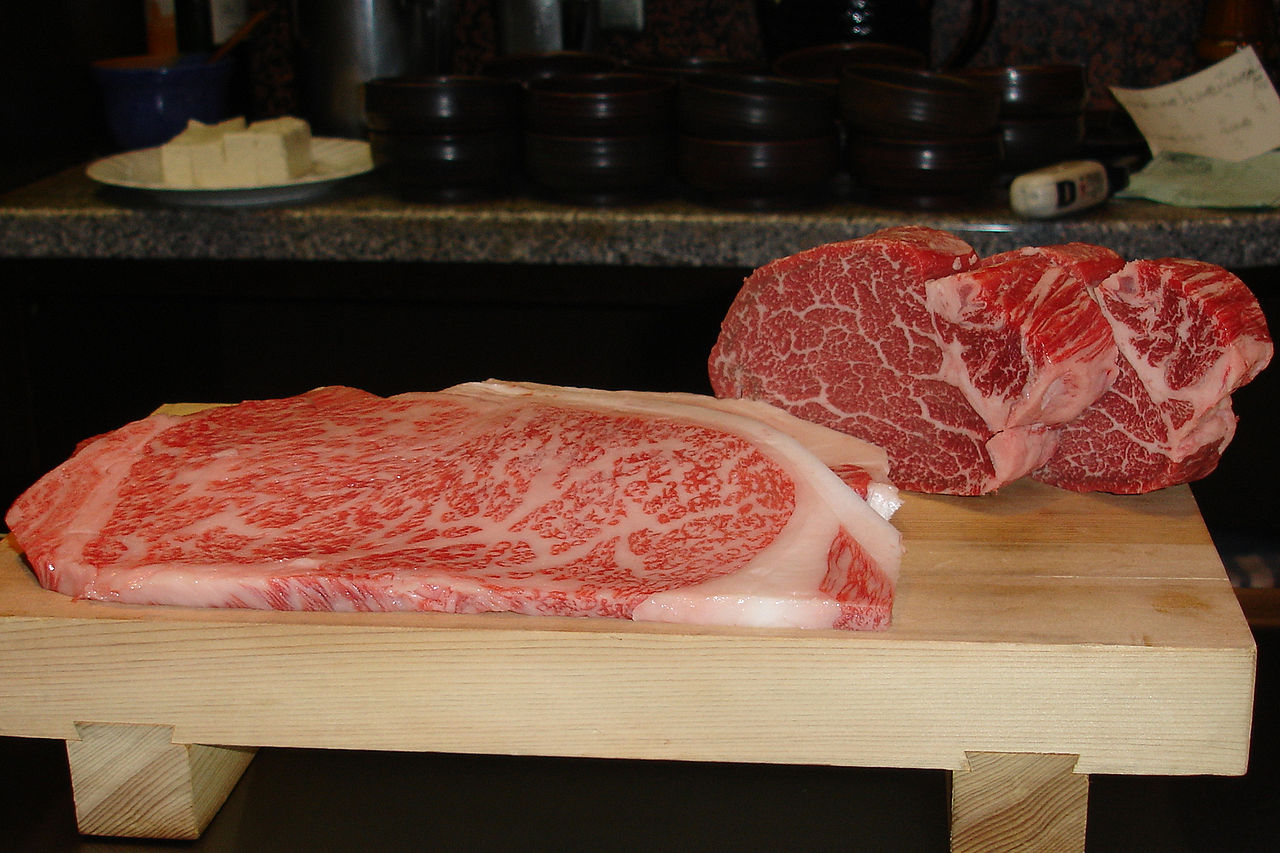
Kobe beef is a type of Wagyu beef from the Tajima strain of Japanese Black cattle, which are raised in Hyōgo Prefecture, Japan. The cattle must meet strict criteria to be certified as true Kobeincluding being fed only high-quality grains, given access to beer and massages (yes, you read that correctly!), and having an intense marbling pattern. As with all Wagyu breeds, Kobe also has an unusually high fat content compared to other types of beef.
The unique combination of these factors gives Kobe its signature flavor and texture—tenderness so prized that it’s been known to sell for around $200 per pound.
Kobe Nutrition Facts:
• Protein: 23 g
• Total Fat: 7.7–25 g
• Saturated Fat: 2–18 g
• Monounsaturated Fat : 1.2–14 g
• Polyunsaturated Fat : 0.2–4 g
• Cholesterol: 30-90 mg
• Sodium : 40-150 mg
• Potassium : 350-550mg
• Carbohydrates : 0 – 5g
• Fiber: 0 – 2g
• Sugars: 0 – 2g
Kobe beef has a complex flavor profile with a unique umami taste, which makes it stand out among other types of beef. The fat marbling gives Kobe its signature sweet, buttery flavor and a rich texture that melts in the mouth.
Kobe is an excellent source of protein, offering all 9 essential amino acids needed for muscle repair and growth. It’s also high in healthy fats including monounsaturated fatty acids and polyunsaturated fatty acids which can help reduce cholesterol levels and lower the risk of heart disease.
Kobe beef is rich in iron, phosphorus, selenium, zinc and magnesium which are important for various processes in the body. Additionally, it contains high levels of conjugated linoleic acid (CLA) which has been associated with numerous health benefits such as weight loss and improved immunity. Finally, Kobe contains good amounts of omega-3 fatty acids which can help inflammation and heart disease.
Kobe beef is a luxurious delicacy that provides an unparalleled flavor experience. Its rich, buttery taste makes it perfect for steak dishes or any other preparation that calls for beef. With flavor profile, Kobe is make every meal special.
What Is The Difference Between Kobe and Wagyu?
So what sets Wagyu and Kobe apart? Well, the key difference is that while all Kobe beef is Wagyu, not all Wagyu is considered Kobe. In order to be certified as true “Kobe”, it must meet a specific set of criteria that includes breed, feed, massages, beer consumption, etc.
Other than the additional certification process necessary for Kobe beef, both types have an intense marbling pattern and higher fat content compared to other breeds of cattle giving them their unique flavor profiles.
6 Difference Between Wagyu and Kobe Beef:
1 Wagyu is a breed of cattle, while Kobe is a type of beef raised from that specific breed.
2 Kobe beef comes from the Tajima strain of the Wagyu breed.
3 Wagyu cows are raised around the world, with Japan being one of the largest producers, while Kobe beef is only produced in Hyogo, Japan.
4 Wagyu beef has higher levels of monounsaturated and polyunsaturated fats compared to traditional cuts of beef, while Kobe has higher levels of conjugated linoleic acid (CLA) as well as omega-3 fatty acids.
5 Wagyu meat has an intense flavor that can be sweet or nutty, while Kobe has a distinct umami flavor.
6 Wagyu is usually more expensive than Kobe beef due to the strict regulations and labor-intensive process required for Kobe certification.
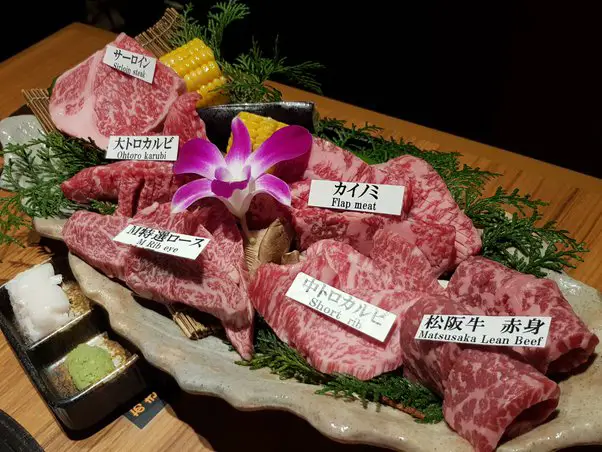
Similarities of Wagyu vs Kobe:
Both Wagyu and Kobe beef are highly prized for their exceptional flavor, nutrient content, and tender texture. Both types of beef have a high fat content with intense marbling patterns that melt in your mouth when cooked correctly.
They also offer excellent sources of protein and contain good levels of healthy fats such as monounsaturated fatty acids (MUFAs) and polyunsaturated fatty acids (PUFAs). Additionally, both Wagyu and Kobe are considered luxury items due to their rarity and expensive price tags.
Wagyu vs Kobe – Which is Healthier?
Due to their intense marbling, Wagyu and Kobe are both considered healthier than traditional cuts of beef because they contain higher levels of monounsaturated and polyunsaturated fats. Additionally, Kobe contains good amounts of CLA as well as small amounts of omega-3 fatty acids which can help reduce inflammation in the body.
Overall, either type of beef is a nutritious choice when incorporated into a balanced diet. However, due to its rarity and expensive price tag, regular consumption of either Wagyu or Kobe should be limited to special occasions or culinary adventures.
How To Choose Wagyu vs Kobe?
When choosing between Wagyu and Kobe beef, it’s important to consider your budget and culinary preference. If you desire a luxurious flavor experience and can afford the price tag, then opt for Kobe due to its intense marbling and umami flavor profile. On the other hand, if you’re looking for an affordable Wagyu option that still provides excellent quality, then you may want to go with regular Wagyu beef instead.
Ultimately, choice when selecting between Wagyu or Kobe as both types of meat offer exceptional taste as well as nutritional benefits. No matter which type of beef you choose, always make sure to purchase from a reputable source in order to get authentic meat.
What is the best way to cook Wagyu or Kobe?
The best way to cook Wagyu and Kobe beef is to lightly sear it on a hot cast iron pan. This will help to lock in all the delicious flavors, while also allowing you to control the temperature and cooking time for a perfect medium-rare steak. It’s important not to overcook the beef since doing so will result in a dryer texture and less flavor. Additionally, avoid using too much oil when searing as this can make your steak greasy.
Another recommended cooking method is to slow-roast the steak in the oven, which will produce a tender and juicy result.
For those looking for something a bit more adventurous, you can try grilling Wagyu or Kobe on cedar planks. This will help infuse smoky flavors into your steak while also adding an interesting texture. Just be sure not to overdo it as grilling too long will cause the meat to quickly dry out. Also remember to season before and after grilling, as this will give your beef an even richer flavor profile.
Wagyu vs Kobe: Cooking Tips & Suggestions
Wagyu and Kobe beef are best enjoyed cooked medium-rare to bring out their unique flavors. When preparing either type of meat, it’s important to use minimal seasoning so as not to overpower the natural taste. For added flavor, try brushing a small amount of oil over the steak before searing for a slight nutty finish.
Just like any other cut of beef, Wagyu and Kobe should be rested for at least 10 minutes after cooking in order to allow the juices to settle into the meat. This will help enhance its tenderness and ensure that you get the most out of your luxurious meal experience.
Where to Buy Wagyu and Kobe Online?
Due to their rarity, authentic Wagyu and Kobe beef can be difficult to find in local supermarkets. To purchase either type of meat online, it’s best to look for reputable sources such as specialty butchers or farms that raise the cattle using traditional methods. Additionally, you can also purchase high-quality Wagyu or Kobe from trusted retailers such as Snake River Farms which offer 100% grass-fed products guaranteed to bring maximum flavor and tenderness with every bite.
How to Store Wagyu vs Kobe
Wagyu and Kobe beef should be stored in the refrigerator to preserve its freshness. If you plan on consuming the meat within 3 days, then it’s safe to store it in a sealed airtight container or wrap tightly with plastic wrap. For longer-term storage, it’s recommended to freeze the beef for up to 6 months.
If you do decide to buy frozen Wagyu or Kobe, make sure to thaw the steak overnight in the refrigerator before cooking for optimal flavor and texture. Also keep in mind that freezing will slightly alter the taste of the meat so it’s best not to do this too often if possible.
Wagyu vs Kobe Recipes:
To get the most out of your Wagyu or Kobe beef, it’s important to prepare them correctly. Here are some recipes that showcase the unique flavors of both types of meat:
Wagyu Beef Steak – Sear a Wagyu sirloin steak with butter and herbs for an unforgettable dinner experience.
Kobe Beef Burgers – Make thick, juicy burgers by mixing ground Wagyu or Kobe beef with seasonings and grilling to perfection.
Kobe Carpaccio – Thinly slice raw Kobe beef and dress it with olive oil, salt, pepper, lemon juice and capers for an appetizing starter dish.
With these recipes in hand, you can now create luxurious dishes at home that showcase the distinct flavors of Wagyu and Kobe beef.
FAQs: Wagyu vs Kobe
What is the difference between Wagyu and Kobe?
The main difference between Wagyu and Kobe is that the latter comes from a specific breed of Japanese cattle called Tajima-gyu. This type of beef features intense marbling, which results in a more tender texture and deeper flavor profile compared to regular Wagyu.
Is Wagyu better than prime beef?
Wagyu is typically more expensive than prime beef due to its superior marbling and intense umami flavors. While both are delicious options, many people opt for Wagyu if they want an unforgettable culinary experience.
How long can Wagyu or Kobe be stored in the refrigerator?
Both types of meat can be safely stored in the refrigerator for up to 3 days. If you plan on storing it longer, then it’s recommended to freeze the steak for up to 6 months.
Is Wagyu or Kobe worth the price?
Given its unparalleled quality and flavor, many people believe that Wagyu and Kobe beef are worth their price tag. It is truly a luxurious culinary experience that cannot be found anywhere else. Nevertheless, if you’re looking for something more affordable yet equally delicious, there are other cuts of beef available such as grass-fed prime ribeye or sirloin that provide amazing taste in every bite.
Is Kobe beef better than Wagyu?
Kobe beef is considered to be the highest grade of Wagyu, due to its strict certification process. Kobe has a distinct flavor profile and higher levels of CLA as well as omega-3 fatty acids compared to other types of. Additionally, it has an unparalleled texture and marbling pattern that make it one of the most sought after delicacies in the world.
Why are Kobe beef prices so high?
Kobe beef prices are high due to the rigorous certification process, limited production, and labor-intensive process required for each cut of meat. The cows must be a certain breed raised in specific conditions with strict dietary requirements and even occasional beer consumption! All these factors make it extremely difficult to produce Kobe beef and contribute to its higher cost.
Is True Kobe Beef Only Found in Japan?
Yes, Kobe beef is only produced in Hyogo, Japan. It follows strict guidelines to ensure high quality and must be certified to meet the “Kobe”. Any other type of Wagyu can come from any part of the world and still maintain its exceptional flavor but it won’t be true Kobe beef.
Does Wagyu or Kobe Beef Need to be Cooked Differently?
Yes, both Wagyu and Kobe beef should be cooked differently than regular steaks. It’s important to cook each cut at low temperatures with minimal charring to ensure the fat melts into the meat and keeps it juicy. Also, avoid over-searing as this will dry out the steak. For best results, aim for a medium-rare finish. Searing followed by slow roasting or sous vid will yield maximum flavor and tenderness. Additionally, braising or smok can also be used to enhance the flavors of these luxurious cuts of meat.
Does Wagyu or Kobe Beef Need Special Equipment?
No, you don’t need any special equipment to cook Wagyu or Kobe beef. All you need is a good quality skillet such as cast iron and some cooking oil. Alternatively, if you’d like to use traditional Japanese methods, then consider investing in a teppanyaki grill which will help evenly distribute the heat throughout the steak.
For optimal results, make sure that your skillet or grill is properly seasoned before adding in the steak. This will ensure that it has an even sear without sticking to the surface. It’s also important not to overcrowd the pan so as not to reduce its temperature too much. Finally, baste your steak with butter or olive oil to keep it moist and flavorful while cooking.
Conclusion:
Wagyu and Kobe beef are highly sought after luxury items due to their intense marbling patterns, sweet flavors, and tender texture. While both types of beef offer exceptional nutritional value in addition to delicious taste, they should be consumed in moderation due to their high fat content.
When choosing between Wagyu or Kobe, consider your budget and culinary preference as well as the source from which you buy the meat. With proper cooking techniques, either type of beef can make for an exquisite culinary experience that can’t be matched by regular cuts of beef.
References:
https://en.wikipedia.org/wiki/Kobe_beef
https://en.wikipedia.org/wiki/Wagyu
http://www.cnn.com/2014/10/07/travel/cnngo-japan-beef-wagyu/

William Lariviere is a chef and restaurateur with over 25 years of experience in the food industry. He is the owner and operator of Swartzsdeli.com, an online restaurant that specializes in gourmet sandwiches and salads, grill & smoke. He likes to share experience, food, recipes cooking knowledge as well as reviews about restaurant and kitchen products.
William’s goal is to provide his customers with healthy, delicious food that is also affordable and develop Swartzsdeli.com into a comprehensive information site specializing in cooking and cuisine to a new level to help reach a wide range of housewives and readers.


